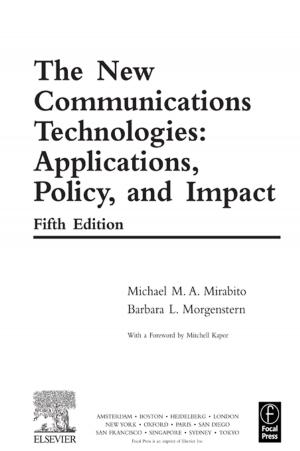U.S.-Venezuela Relations since the 1990s
Coping with Midlevel Security Threats
Nonfiction, Social & Cultural Studies, Political Science| Author: | Javier Corrales, Carlos A. Romero | ISBN: | 9781136622175 |
| Publisher: | Taylor and Francis | Publication: | October 12, 2012 |
| Imprint: | Routledge | Language: | English |
| Author: | Javier Corrales, Carlos A. Romero |
| ISBN: | 9781136622175 |
| Publisher: | Taylor and Francis |
| Publication: | October 12, 2012 |
| Imprint: | Routledge |
| Language: | English |
Oil makes up one-third of Venezuela's entire GDP, and the United States is far and away Venezuela's largest trading partner. Relations between Venezuela and the United States, traditionally close for most of the last two centuries, began to fray as the end of the Cold War altered the international environment.
U.S.-Venezuela Relations since the 1990s explores relations between these two countries since 1999, when Hugo Chavez came to office and proceeded to change Venezuela's historical relation with the United States and other democracies. The authors analyze the reasons for rising bilateral conflict, the decision-making process in Venezuela, the role played by public and private actors in shaping foreign policy, the role of other powers such as China, Russia, Iran, and Saudi Arabia in shaping U.S.-Venezuelan relations, the role of Venezuela in Cuba and Colombia, and the impact of broader international dynamics in the bi-lateral relations.
Oil makes up one-third of Venezuela's entire GDP, and the United States is far and away Venezuela's largest trading partner. Relations between Venezuela and the United States, traditionally close for most of the last two centuries, began to fray as the end of the Cold War altered the international environment.
U.S.-Venezuela Relations since the 1990s explores relations between these two countries since 1999, when Hugo Chavez came to office and proceeded to change Venezuela's historical relation with the United States and other democracies. The authors analyze the reasons for rising bilateral conflict, the decision-making process in Venezuela, the role played by public and private actors in shaping foreign policy, the role of other powers such as China, Russia, Iran, and Saudi Arabia in shaping U.S.-Venezuelan relations, the role of Venezuela in Cuba and Colombia, and the impact of broader international dynamics in the bi-lateral relations.















